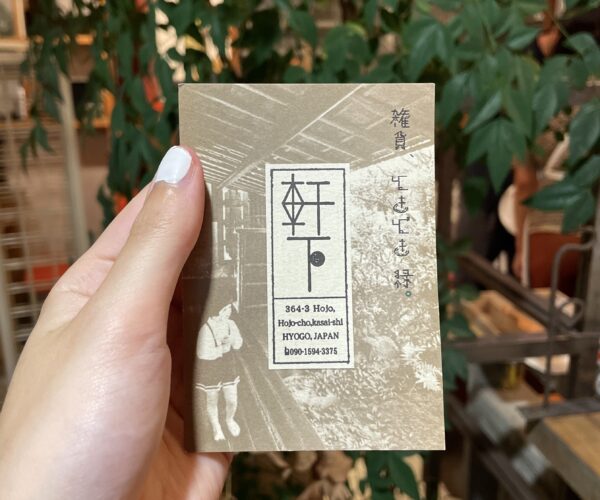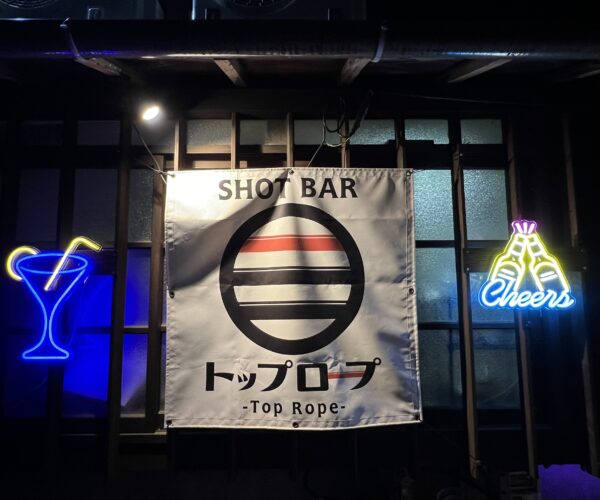Rebecca (Becca) Guttentag
(Oita, 2014-2018)
Localization Producer, Riot Games
Interview by: Kimberly Matsuno (Niigata, 2019-2022)
As is tradition with every JET Program participant, we must ask the questions: Why JET? Why Japan?
I was actually born in Japan. My parents were both Air Force doctors. Even though we moved back to the United States when I was about two or three years old, I grew up hearing lots of stories about Japan and became interested in Japanese culture. I discovered Japanese games as a kid and found yet another connection to Japan.
I finally got the chance to return to Japan when I took a year to study abroad in Tokyo at Waseda University. The whole experience was formative, to say the least, but I feel like the time spent with my host family was truly inspirational. I was placed with a family with two small children, and it was such a moving experience seeing the kids growing up with a global mindset.
I heard about the JET Program sometime after I returned to the U.S. It seemed like the perfect opportunity to give back to Japan and to help more children develop a more global mindset.
Tell us about your current position as the lead Localization Producer for VALORANT.
My company, Riot Games, is an American company that produces games in English. However, roughly 85% of our players are not playing in English.
My job is to facilitate the translation of the English source into the 17 other languages that the game supports. I act as a bridge between the developers, the marketing teams, the regional teams, and more to ensure that our games are as locally resonant as possible. Because at the end of the day, we want all of our players to feel like the game was designed for them.
Essentially, that means I need to understand what the linguists need to know, what sort of plans the developers and marketers have planned, and that everyone has the information and tools necessary to do their job. It’s a lot of meetings but it’s highly rewarding.
What is the difference between localization and translation?
There is certainly an interplay between the two. I always simplify it in layman’s terms by saying that if translation is translating words directly, localization is translating everything else around the words.
We have to consider things like if a language is read right to left or top to bottom as this can affect display screens and menus. And we have to consider if certain phrases or references will make sense in other cultures.
I love this example from our game League of Legends. We have a character named Galio, and one of his lines in English is “We serve cookies in Hell, and they’ve all got raisins.” To Americans, it’s obvious that these hell cookies are terrible because we all know raisin cookies are the worst. But the intent would be lost on a culture that actually likes raisins in cookies. So with our Italian team, the line was instead changed to “We serve pizza in hell, but only with pineapple.” Because in Italy, pineapple pizza is almost sacrilegious.
Sometimes I hear debate around localization and people questioning if we’re losing out on accuracy. But we feel it’s important to capture as many fans as possible, and we don’t want our fans to feel alienated or like the game wasn’t made for them. So I feel there is a balance between the creation aspect and business intent.
Localization as a jobs sphere is still pretty new. Everyone knows and needs translation. However, people are starting to learn more about the larger concept of localization and see its importance.
What does your typical day look like?
I work out of our office in Santa Monica, California, but the teams I work with could be anywhere. Our developers are mostly in Los Angeles, the testers are based in Montreal, and our linguists are scattered across the globe. That’s a lot of time zones. This means emails are coming in at all times of the day and night.
So, I review what is going on and connect with regional teams in the morning. The middle part of my day is spent communicating with test leads to understand where the state of our testing is and what concerns they have.
Since VALORANT is a “live service game,” patches are happening every two weeks. So the last part of the day I spend working alongside the developers and publishing teams in the office to understand what is coming down the pipeline.
What games/projects have you worked on?
At Riot Games, I’ve worked on projects such as “League of Legends,” “Team Fight Tactics,” “Legends of Runeterra,” and, of course, “VALORANT.”
But I didn’t start working on these big-name games right away.
I actually started my career in localization with a “vendor-side” company (as opposed to a “client-side” or in-house studio like I’m at now). Most studios can’t hire in-house translators. So many work as freelancers. I worked for a vendor company that worked as the middleman coordinating between studios and translators. My role was to understand the needs of the game companies and find the best translator/reviewer for that job.
Do Localization Producers need a high level of Japanese (N2 or N1)?
This is such a “JET Program answer” but ESID. Every situation is different and it really depends on the company.
When I was getting started in the industry, I looked for Japanese companies in the U.S. like Sega, Nintendo, and the Pokemon Company at first. I found that because those are the “branch” companies with the central team being in Japan, those companies tend to require a higher level of Japanese. Corporate communications are in Japanese, and the same usually goes for any presentations you are expected to give. Since Riot Games is an American company and corporate communication is in English, strong Japanese skills are not as necessary but can certainly help.
How has being a part of the JET alumni community helped you?
I would not have my job if not for a JET alumni. The person who got me a foot in the door was a JET alum herself. And when it comes to game localization in general, there are a lot of JET alums that ended up in the industry.
Back when I was just getting started, I cold-messaged people on LinkedIn who worked in the gaming industry and had JET experience. Actually, looking back on those messages now is a bit embarrassing, but I’m amazed seeing how so many of those early contacts have progressed in their careers into senior leadership positions. The JET alumni network is such a tight-knit network that if you pull on the threads enough you will find someone willing to guide you.
Building that communal network has been so rewarding and something that I would highly recommend to any JET finishing their contract—not only for professional connections but for personal ones as well.
Personally, I am the co-president of the JET Alumni Association of Southern California (JETAASC), and participating in my local chapter has been such a great experience. It is easy to get yourself in your own professional bubble, so it is rewarding to connect with people who have taken their JET experience and used it in a completely different field.
How did your experience in Japan on the JET Program contribute to your success as a Localization Producer?
Working at Riot doesn’t require me to use a language other than my native language, English.
But what my role does necessitate is a global mindset.
When I tell people about my job, many times they assume I speak a lot of languages. I don’t.
But my experience as a JET in Japan and being the “fish out of water” helps me understand many of the struggles our non-English speaking players go through.
Because of my time spent in Japan, I know how to think dynamically about how certain English-centric mindsets can cause problems for our linguists later down the line. A simple sentence can create numerous conflicts in other languages due to things like plurality, gender, sentence structure, and more. A monolingual person might not understand that innately, so the global mindset I developed on the JET Program helps me to understand where all my regions are coming from and vouch for their needs.
Do you have any words of advice for JETs who wish to work in the gaming localization industry?
Looking at the gaming industry from the outside felt like a big black box. I was always a fan of games and, more recently, a Japanese speaker, but I had no idea what the ins and outs of the industry looked like. I would recommend those interested in gaming understand what the average developer is doing, and what skills you need to be able to assist them.
There is a great conference called the Game Developers Conference (GDC) in San Francisco every year. You can apply to work the event as a volunteer and in return, you get an all-access pass. That was the first time I got a chance to see how the developers were working. And it was hugely influential to me.
But the internet is vast. There are so many free courses on designing games. Understanding the technical side of things is a huge benefit when it comes to working in localization.
Additionally, I’d never say that this is the only route, but my experience at the Middlebury Institute of International Studies was another huge factor that allowed me to get where I am today. Their Master of Arts in Translation and Localization Management (TLM) degree really prepared me for my career. And I know other alums have gone on to work for huge companies like Netflix and Google. Plus, there is a scholarship for JET alumni. In my Japanese cohort, more than half were former JETs.
Also, cold messaging on LinkedIn is scary but does have its benefits.
Final question. . . . What is your favorite video game?
I grew up pretty solidly in the Pokemon uprising. I’d have to say it’s my most consistent game. But I love RPGs, and my favorite game of all time is Tales of the Abyss. I love how it shows how immersive a narrative can be if you put the time into it, and the localization was top-notch.
Becca Guttentag is a Japanese-English localization specialist and gaming enthusiast with a dedicated passion for producing engaging cross-cultural experiences through localization. After finishing her undergraduate studies at Kenyon College with a Liberal Arts BA and a focus in Sociology and East Asian studies, she spent four years as an Assistant Language Teacher in Japan with the JET Program, working to enrich her local community & foster cross-cultural exchange through community engagement on her local prefectural event planning committee. She returned to America with a newfound drive to hone her localization skills at the Middlebury Institute of International Studies’ Translation and Localization Management MA degree program. She now works tirelessly to advocate for localization and internationalization strategies in Game Localization through her work with Riot Games as the lead Localization Producer on VALORANT.
Kimberly Matsuno is a JET alum (Niigata 2019-2022) currently serving as USJETAA‘s Content Strategist. She was an ALT in Niigata from 2019-2022, during which time she contributed to [CONNECT] Magazine as both a writer and a section editor. She is excited to continue contributing to [CONNECT] and to assist in fostering relations between current JETs and the JET alumni community.




